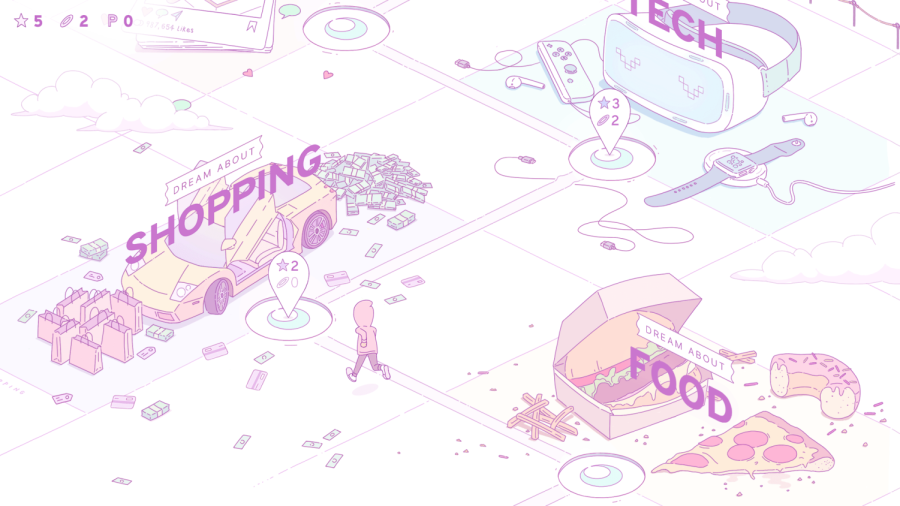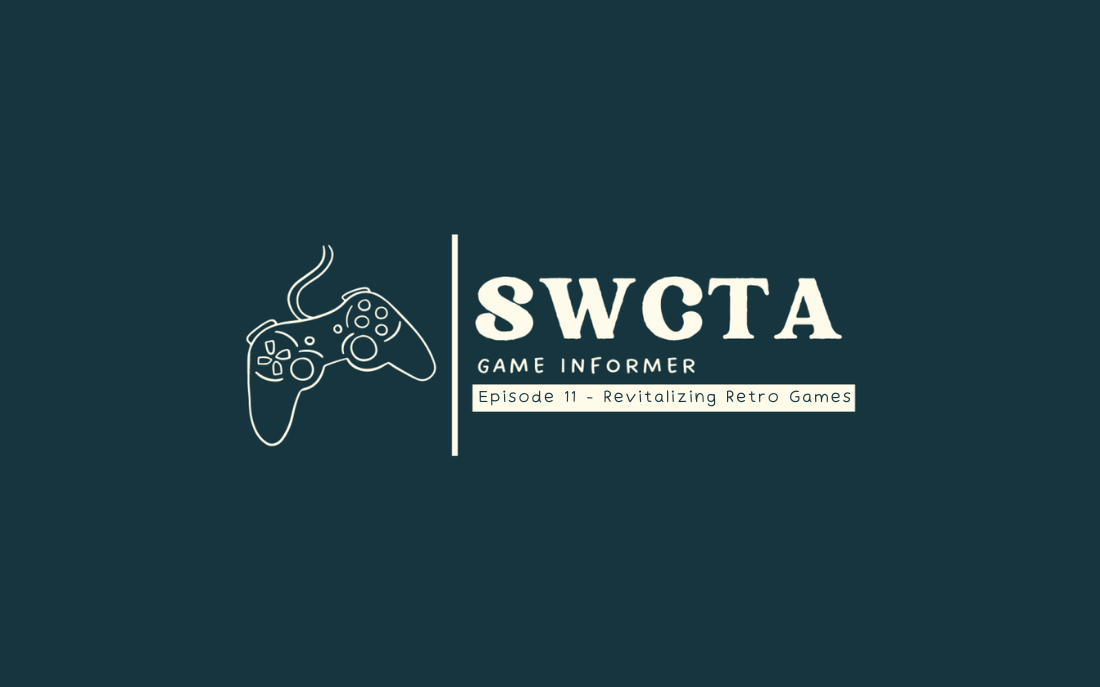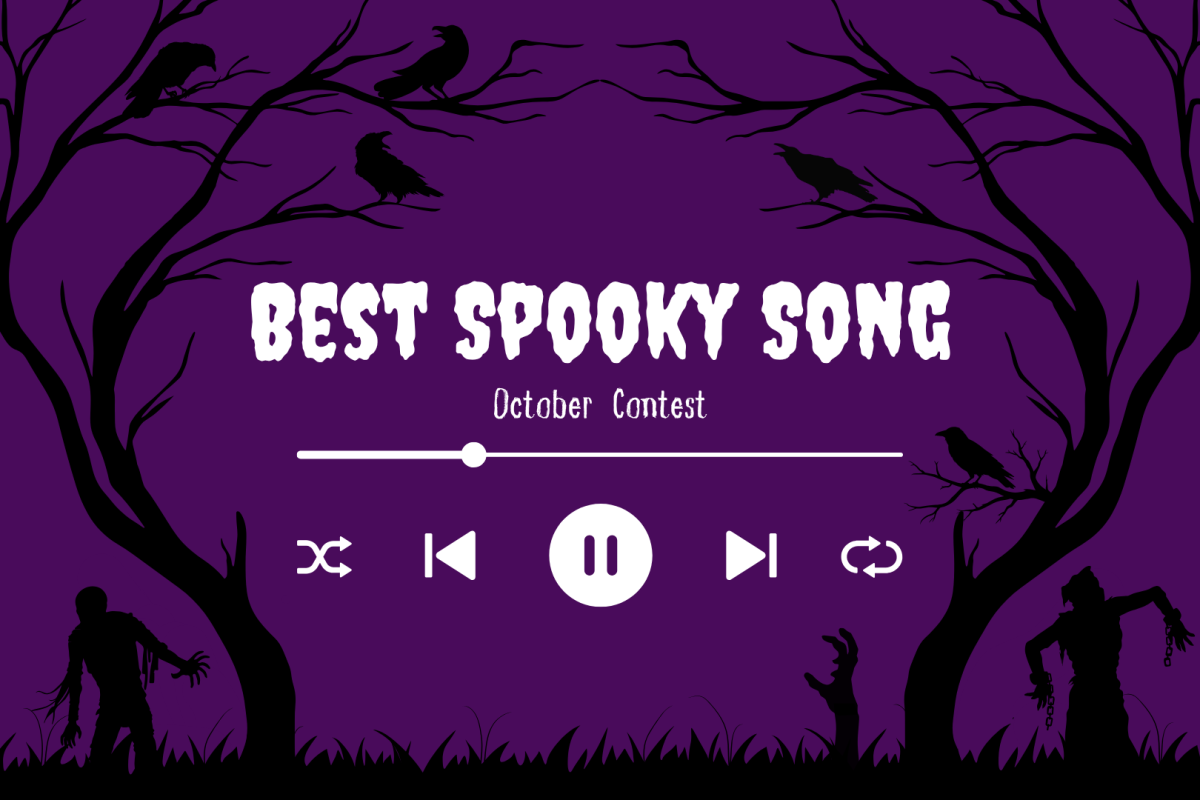Become one with your dreams in ‘Melatonin’
Traverse the line between reality and dreamscapes
Rating: A
Art Credit: Half Asleep
February 7, 2023
Many people find solace in sleep, especially when reality is exhausting. Melatonin, sharing a name with the hormone that aids sleep, is a lo-fi music rhythm game with dreamy colors to match. The night terrors, dreams, conflicts and desires of a struggling insomniac are unfurled for the player to explore.
This fever-dream of a game was developed by Half Asleep Games, an indie game studio. In a typical rhythm game, hitting the notes when they appear or reach a certain point is the main focus. Put simply, Melatonin’s gameplay has no visual notes. Instead, it relies solely on the player’s perception of rhythm and senses. The best example of this is “Rhythm Heaven”, released in 2015. Being the childhood game for many, including myself, I was first drawn in by their similarities.
Both games use similar mechanics and have a few parallel scenes. Despite the clear similarities that people find at first glance, they are both uniquely worth playing. Rhythm Heaven applies saturated colors, exuding boldness and excitement with similar songs. On the other hand, Melatonin’s quiet palette consists of blues, purples and pinks, setting a dreamy atmosphere for the songs and storyline. Both games shine in their respective aesthetics.
Melatonin requires only four buttons to play. The action key (spacebar) and direction keys (WASD or arrow keys). These can be easily adjusted in the settings under the Keyboard option. I prefer using WASD due to its familiarity, which the player needs to change manually from arrow keys.
The world of Melatonin dances with the rhythm. Ticking clocks, flashing screens, and tapping to the beat; everything is completely immersed in music. At the start of a new song, the game requires at least one practice round. These are shortened forms of the song and provide the player with visible notes and a background metronome. After the player has adjusted to the new song, “score mode” becomes available. This is when a score can be earned in order to advance towards the final level.
The gameplay requires you to consistently use your ears and eyes, relying on your intuition for which notes to press next. Midway through a song, the game challenges the player using creative obstacles. Balancing myself on visual cues, memorizing the rhythm, and acting as a metronome was challenging. Eventually, I dropped everything and tried to play more absent-mindedly. I yielded way better results and realized it was my overthinking holding me back.
When the player’s score is too low, the game encourages them to adjust the accessibility in settings. From there, players can activate any combination of four buttons. Visual assist, audio assist, wiggle room and easy scoring. Visual assist shows upcoming notes, audio assist emits a metronome, wiggle room expands the amount of time to hit a perfect, and easy scoring reduces the penalty for early and late notes.
One level after another, the player dives deeper into the main character’s subconscious. It’s no longer about simple desires like eating food or becoming famous– but burning up the past, running away from stress, and cultivating self-worth. Melatonin’s story is obvious without any need of dialogue or long cutscenes.
Melatonin is quickly becoming one of my favorite games. The songs and visuals are addicting, and I often use the game’s soundtrack as study music. If you’re interested in the rhythm game genre, or are already well acquainted with it, I highly recommend trying out this game.









